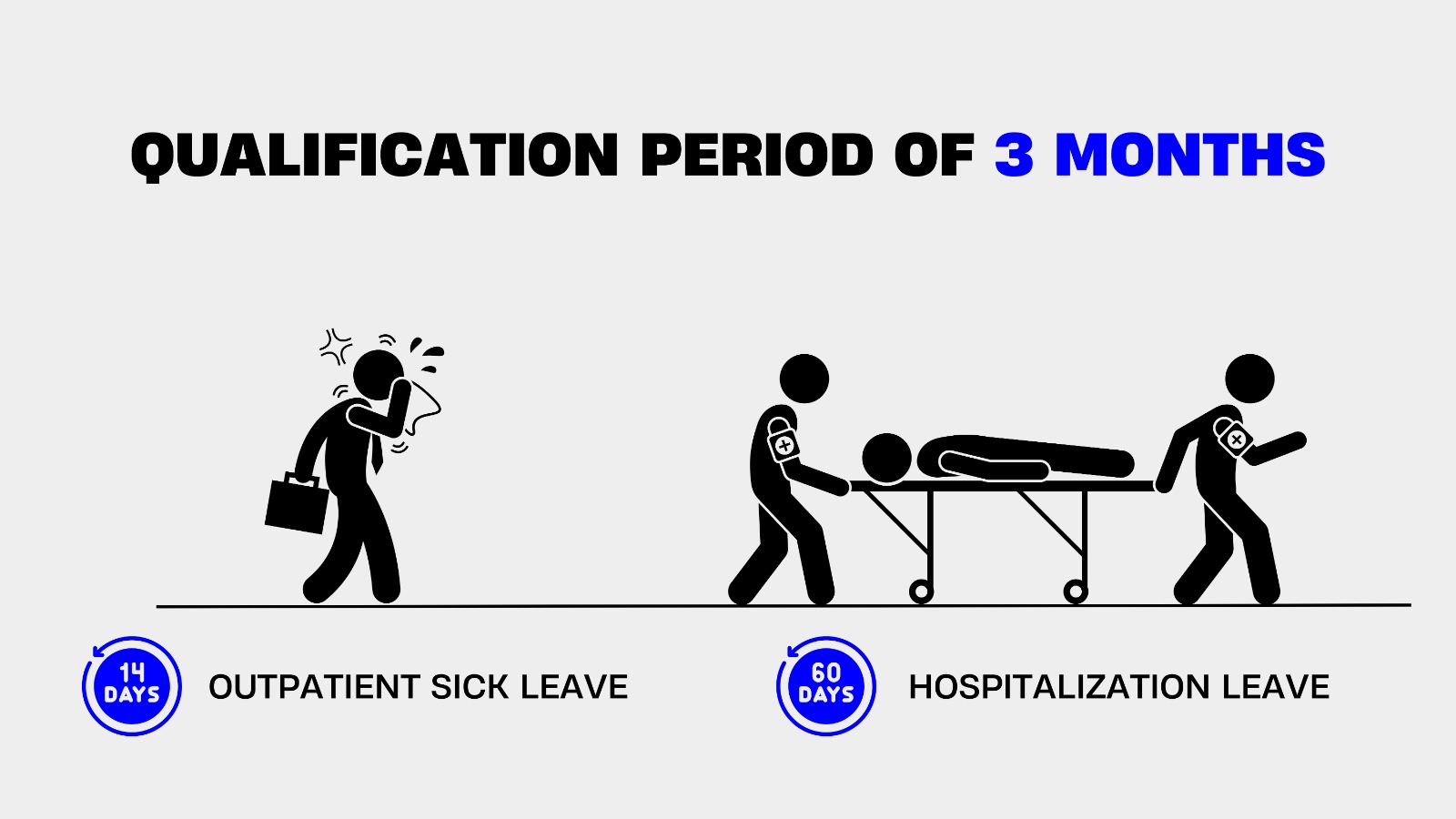To manage medical leave in Singapore, one must find a balance not just for the health and wellbeing of an employee but also in favor of running a successful business. Both in the case of being an employer or employee, understanding the nuances of medical leave formulations become an important factor in providing the employee a healthy and productive environment to work.
Understanding Medical Leave in Singapore
As per the Ministry of Manpower, medical leave, or sick leave, is actually a right for all employees in Singapore. The Employment Act has some specific provisions both for outpatient sick leave and for hospitalization, making sure that all employees receive ample time for recovery.
Medical Leave: Key Entitlements and Requirements
Paid Outpatient Sick Leave
All employees who have worked for the employer for at least three months are entitled to:
- 14 days of paid outpatient sick leave
- 60 days of paid hospitalization leave
- The above includes the outpatient sick leave period of 14 days.
Medical Certification Requirements
According to the Singapore Medical Council, the medical certificates (MCs) should be issued by:
- Registered medical practitioners,
- Government hospitals,
- Company-approved doctors,
- Dentists (surgery purposes).

Employer Obligations
Payment During Medical Leave
As per the experts on employment law at Singapore Legal Advice, employers must:
- Pay the gross rate of pay for medical leave,
- Not deduct annual leave entitlements,
- Act as quickly as possible in processing claims for sick leave.
Fair Treatment and Protection
The Tripartite Alliance for Fair & Progressive Employment Practices (TAFEP) emphasizes that employers should:
- Not terminate an employee on medical leave,
- Provide utmost confidentiality regarding medical information,
- Provide reasonable accommodation as necessary.
Employee Responsibilities
Proper Notification
Employees should:
- Inform employers as soon as possible
- Submit medical certificates promptly
- Keep communication channels open
- Update on recovery progress when appropriate
Documentation Management
Maintaining proper records is crucial:
- Keep copies of all medical certificates
- Document communication with employers
- Record any related expenses
- Track leave balances
Common Challenges and Solutions
For employers
Managing workload
- Implement backup systems
- Train a group of people to do different jobs
- Develop contingency plans
- Utilize temporary staff when necessary
Preventing abuse
The Singapore Business Federation recommends:
- Establishing clear policies and guidelines
- Maintaining open lines of communication
- Implementing fair performance monitoring systems
- Creating supportive work environments
For the employees
Managing long-term illness
- Communicate with your employer regularly
- Know your rights and benefits
- Contact HR staff for assistance
- Talk about a possible return-to-work plan
Dealing with chronic conditions
Work with health care providers to:
- Develop a management plan
- Schedule treatment sessions
- Document any medical needs
- Discuss workplace accommodations
Medical Leave Management: Best Practices
Digital Documentation
Modern organizations opt for:
- Electronic submission of medical Certificates
- Online Leave Management Systems
- Digital Record-Keeping
- Automated Tracking Systems
Clear Communication Protocol
Establish:
- Notification procedures
- Contact points when on leave
- Return-to-work processes
- Document requirements
Future of Medical Leave Management
Emerging Trends
The Institute for Human Resource Professionals identifies a range of trends:
- Flexible work arrangements for recovery
- Mental health leave provisions
- Telemedicine integration
- Wellness program implementation
Supporting Mental Health
The awareness of mental health is growing. Some of the calls for action from the Singapore Association for Mental Health include:
- Bringing mental health into medical leave policies
- Breaking the stigma around mental health leaves
- Providing supporting resources
- Creating inclusive workplace cultures
Also Read: Navigating the CDAC Contribution Rate: A Comprehensive Overview
Conclusion
Medical leave handling in Singapore demands understanding, compassion, and clear communication from both sides. Undeniably, challenges are there; however, the proper management of medical leave propounds a healthy working environment.
It remains the interest of all organizations to know their rights and obligations and effectively manage medical leave processes. Such organizations encourage a supportive environment where employee safety and wellbeing coexist in balance with business interests. As the health of the workplace continues to evolve, so will the effective management of medical leave.








 5
5


























